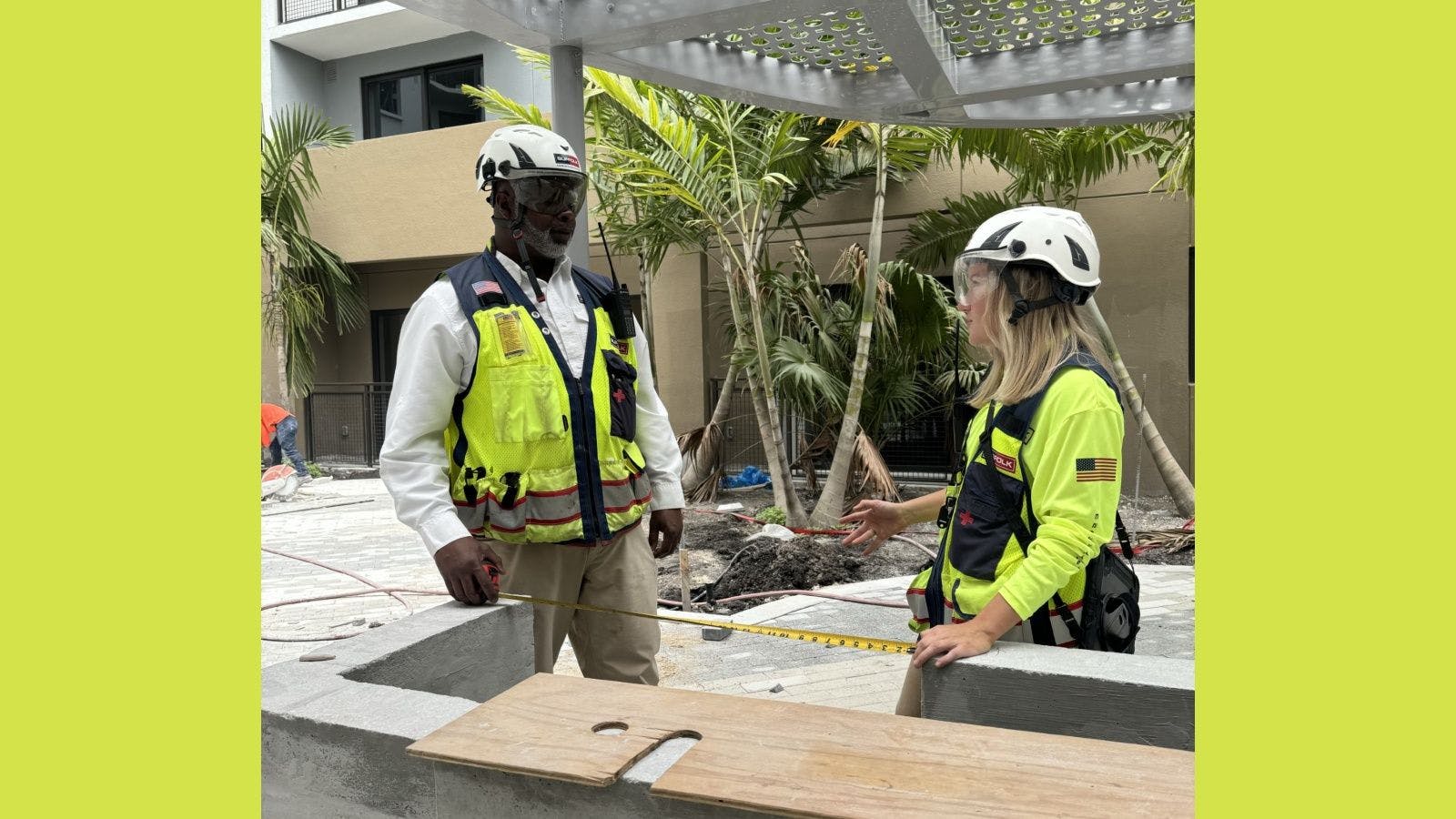
A Merit-Based Business Is Built on Inclusion
The pressure is on for managers in the construction industry to make sure that their jobsites are inclusive for everyone—visitors, clients, employees or otherwise—by pushing back against potential stereotypes. There are a range of benefits to doing this that can benefit the sector as a whole as well as individual businesses and individuals themselves.
ABILITY
More and more companies today have staff members or clients who live with a disability. Your jobsite, therefore, needs to be accessible for everyone—those working on it, those overseeing it and those visiting it—in order for it to operate not just effectively but optimally.
Proper accessibility and inclusion efforts can start right at the beginning of the recruitment process. Making disability declarations—mental and physical—clear on your applications. As candidates enter into the interview process, a panel of diverse abilities will also signal inclusivity.
Both before and after recruitment, take the time to understand the certain disabilities onsite in order to then make decisions on the best adjustments to make. Working on adjustments with people who have a disability can make it much easier for you to see what adjustments to make and how to make them.
One example includes taking a close look at your welfare facilities. Using portable toilets on your site means they can be places in accessible areas for anyone who needs them, instead of relying on people navigating to farther away buildings. A reputable portable-toilet supplier should also be able to ensure there are toilets that are wheelchair accessible. Also consider the access to the site, in order to accommodate ramps, wheelchairs and/or walking aids.
Providing quieter break spaces can also be a reprieve for both those who are neurodiverse and those who might simply be overwhelmed or under the weather on a particular day. There may also be adaptations that can be made to equipment to make it easier to use, like autonomous, remote or AI elements. Offering flexible hours to allow for necessary medical appointments outside the allotted sick days should also be taken into account.
GENDER
The construction industry is still seen as a male-dominated environment. This is typically due to a stereotypical image women have of the industry or vice versa, unconscious bias and/or a lack of training. When women are seen working on construction sites or in project offices, they become role models for others and the effect snowballs. Beyond that, when you consider and accommodate all employees fairly and with merit, then you will be more likely to attract employees from various backgrounds to fill various positions.
In some cases, incorporating culture and inclusivity training to all staff members, from the field to the leadership office, can be helpful in not only making others feel more welcome on a jobsite or in an office, but also enhancing the functionality of the site with a vaster pool of knowledge. Working with schools and educational programs to inform students of the variety of positions and potential for them in the skilled trades is also a way to encourage the idea of inclusion earlier on and a better pool of merit in the workforce later on.
As with disability accommodations, there are still some specifics that need to be taken into consideration when accommodating for women on a jobsite. This might include providing separate toilet, washing and changing facilities. As well, although remarkably more women are entering, staying in and leading the workforce, they are still often found to take on the majority of the household roles in their families. Offering flexible hours that can work around school, holidays and surprise sick days can be another move that is effective at attracting women to a job and retaining them.
Unfortunately, a gender pay gap still exists in most industries. By making sure that your business pays its staff and offers promotion opportunities purely on the basis of merit, you are more likely to make your company more inclusive and therefore more attractive to quality talent.
BENEFITS
Making your workplace more inclusive is not just about ticking ethics boxes; there are some very real rewards to reap. Studies have shown that gender diverse companies are 25% more likely to achieve above-average profitability. There also remains a critical labor shortage in the construction industry, and by being more inclusive, you are far more likely to fill your merit gaps. The wider the reach of your recruitment, the more likely you are to fill your vacancies with the best possible people for each job.
While implementing new policies doesn’t happen overnight, providing training and enacting small changes day-to-day can have incredible long-term benefits without feeling overwhelming. Being a business built on merit gives you access to more skills than ever before, which can make your site a happier place to be, a more effective workplace and more profitable overall.
Related stories








